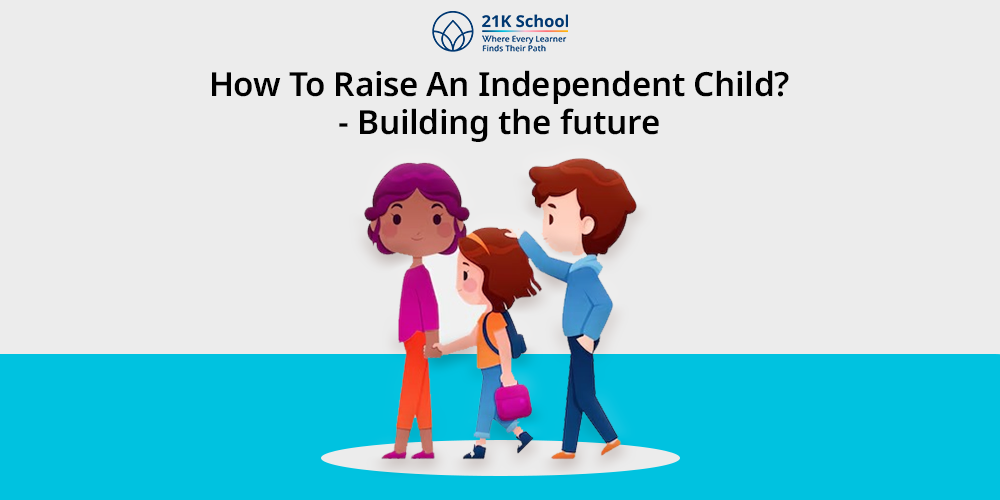
Raising an independent child is about building the future. It is not a one day task but takes a long time. Independence of children is essential and crucial for children’s success.
It is not just about making children able to earn money but helping them stand on their own feet. It is important not only in their school life but in their personal life as well.
After being independent, children become self- independent, reliant, confident and problem-solving . Their perspective changes and they are able to handle their problems more effectively.
Here is a blog which explains to you about independent child meanings, factors and tips to raise them.
Go through it and have a complete understanding about how to raise an independent child.
Contents
Who is an Independent Child?
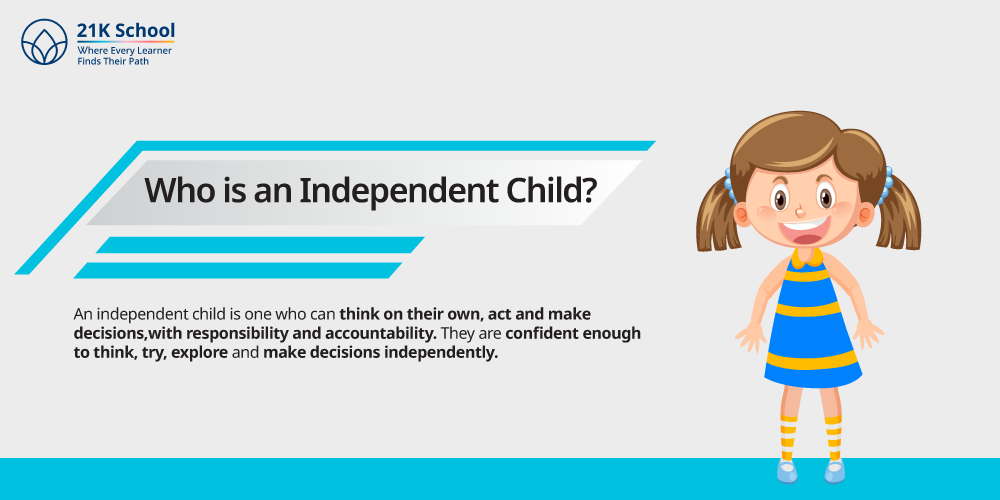
An independent child is one who can think on their own, act and make decisions, with responsibility and accountability. They are confident enough to think, try, explore and make decisions independently. Rather than relying on someone else, they solve problems on their own, think critically and take steps as per decisions.
Why does Independence Matter?
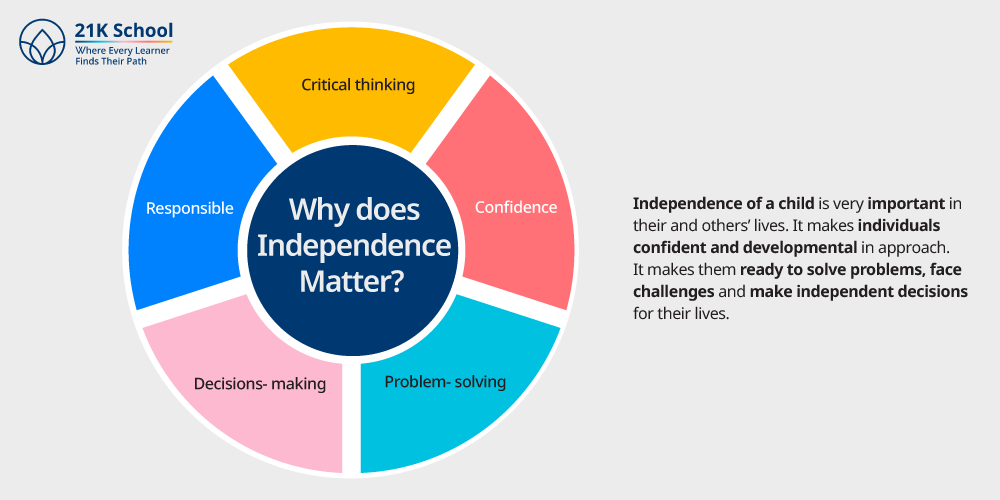
Independence of a child is very important in their and others’ lives. It makes individuals confident and developmental in approach. It makes them ready to solve problems, face challenges and make independent decisions for their lives.
Also read- how to make a child study independently
Here are some important factors that tell why independence matters.
1. Responsible
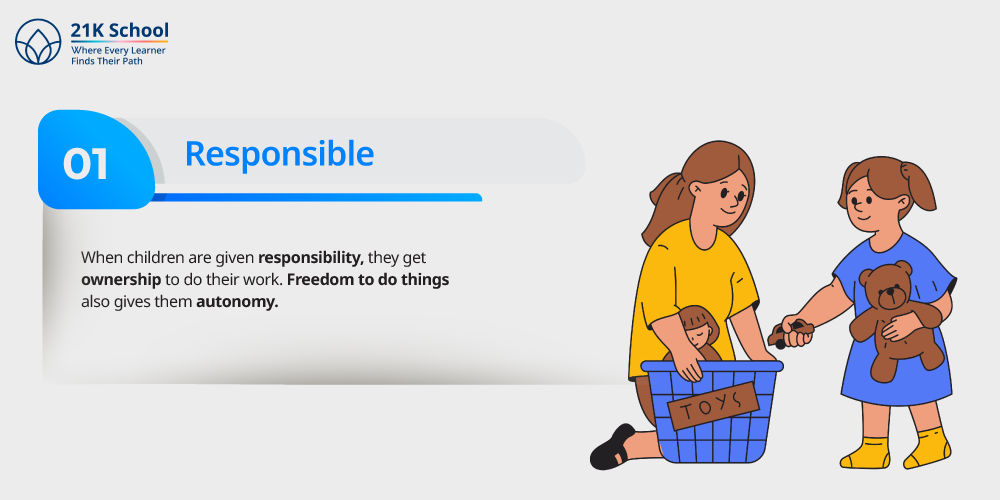
When children are given responsibility, they get ownership to do their work. Freedom to do things also gives them autonomy. Independence gives them reliance, responsibility and accountability.
2. Confidence

Confidence gives them independence to do work, explore new things and make choices. This makes their confidence boost, and they take new actions. They feel proud of their work and achievements.
3. Problem- solving
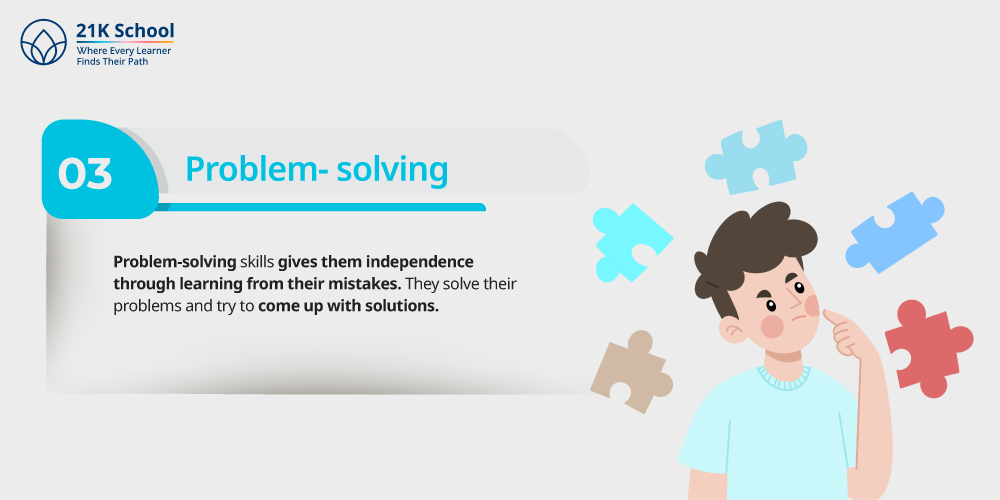
Problem-solving skills gives them independence through learning from their mistakes. They solve their problems and try to come up with solutions.
It makes them handle their problems on their own and face challenges and their consequences. They are able to take on real- life challenges and situations themselves.
4. Critical thinking
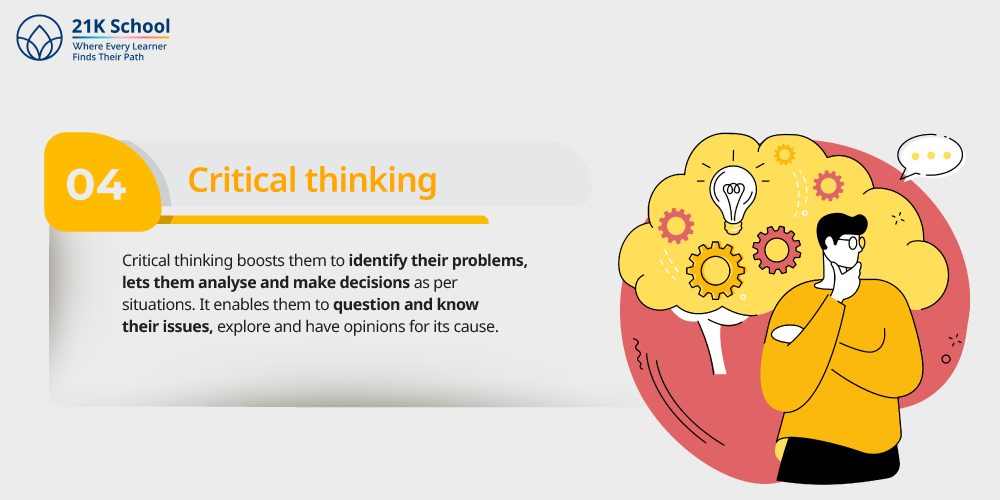
Critical thinking boosts them to identify their problems, lets them analyse and make decisions as per situations. It enables them to question and know their issues, explore and have opinions for its cause.
Instead of blindly following critics, it raises voice, has critical thinking skills and applies in their real life situations.
5. Decisions- making
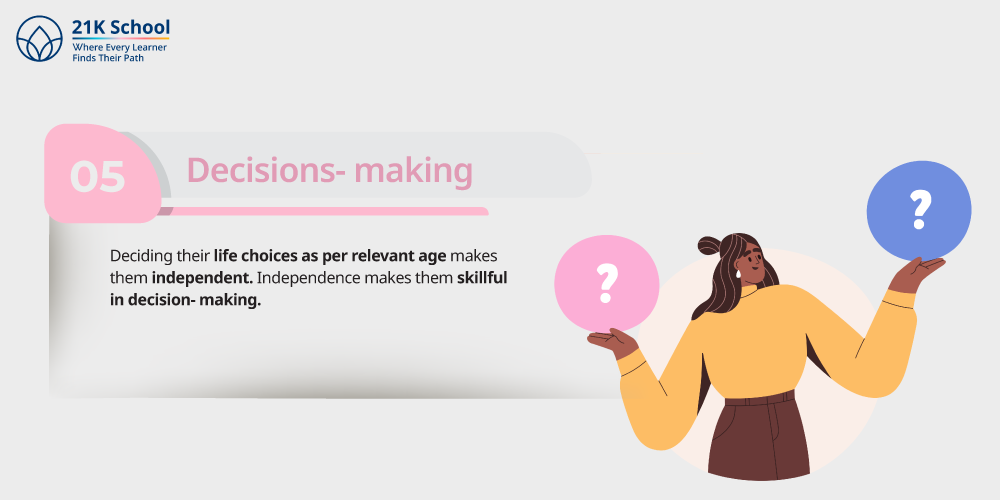
Deciding their life choices as per relevant age makes them independent. Independence makes them skillful in decision- making.
This thing also lets them choose among their choices and take on priority tasks. There is also an influence of their peer- pressure.
How to Raise an Independent Child?
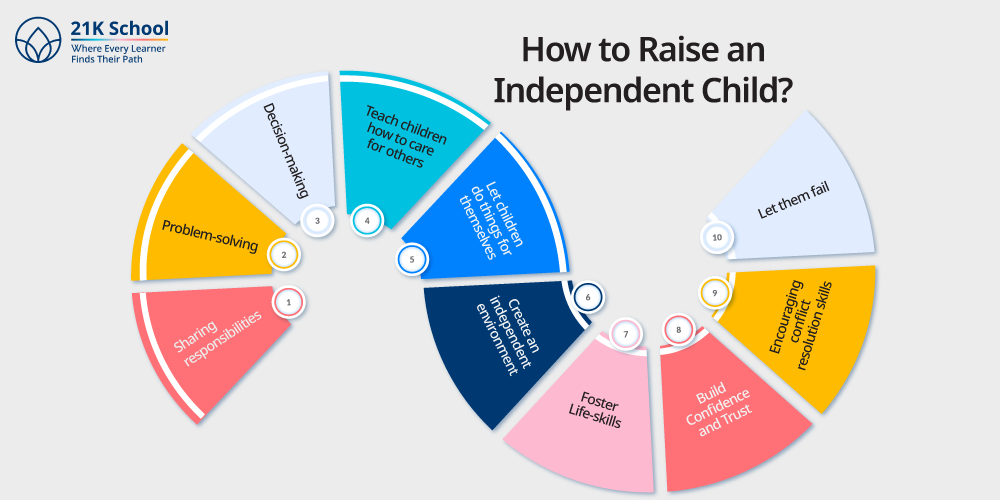
Here’s a practical guide and strategies to raise an independent child.
1. Sharing responsibilities
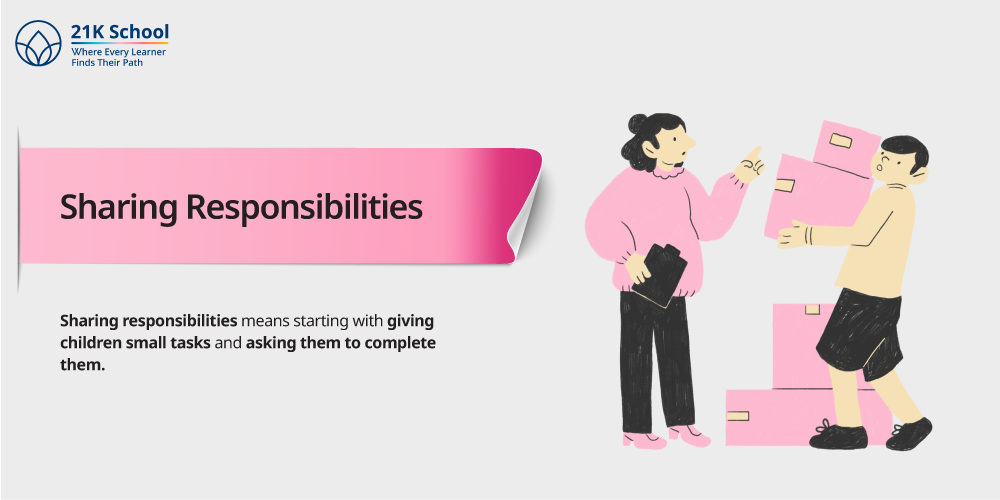
Sharing responsibilities means starting with giving children small tasks and asking them to complete them. It has to be started from the tender age of a child as an important factor. Likewise, giving them appropriate responsibilities as per their age.
Like, giving them work to arrange all the chairs, keeping spoons at one place, finishing their lunch box, etc.
2. Problem- solving
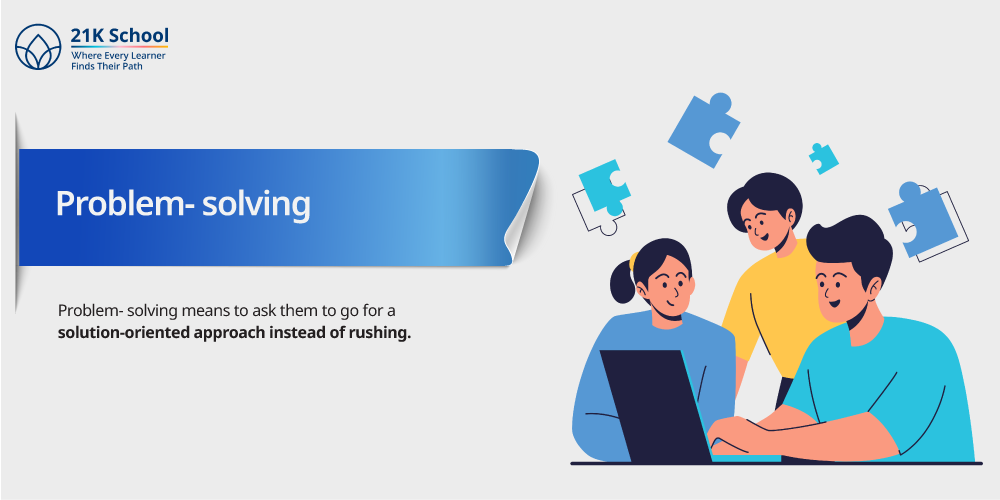
Problem- solving means to ask them to go for a solution- oriented approach instead of rushing. Boosting them to go for problem-solving techniques rather than complaining and criticising them. Different ways to fix problems can be discussed with children.
3. Decision- making
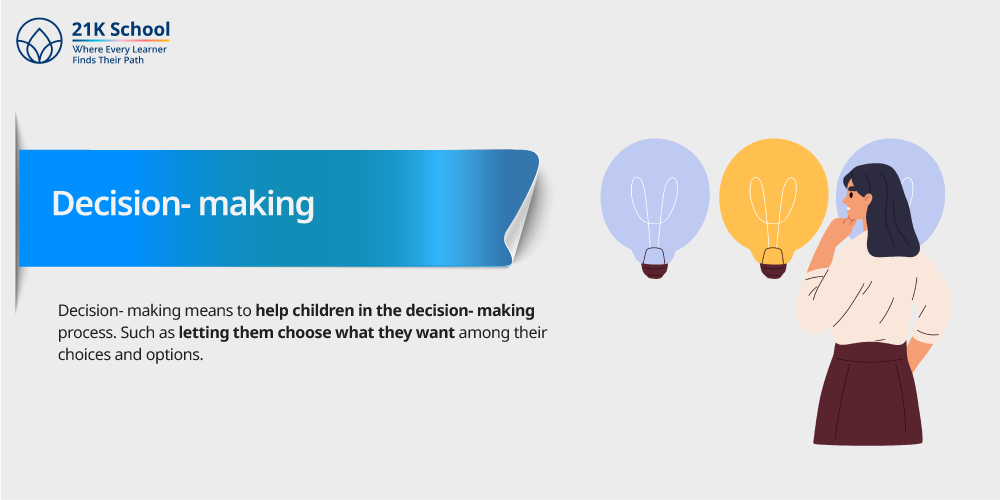
Decision- making means to help children in the decision- making process. Such as letting them choose what they want among their choices and options.
Decision- making also gives them a sense of responsibility and accountability. Likewise, helping them decide which clothes they want to wear and their weekend activities.
Learn more about self awareness activities for students .
4. Teach children how to care for others
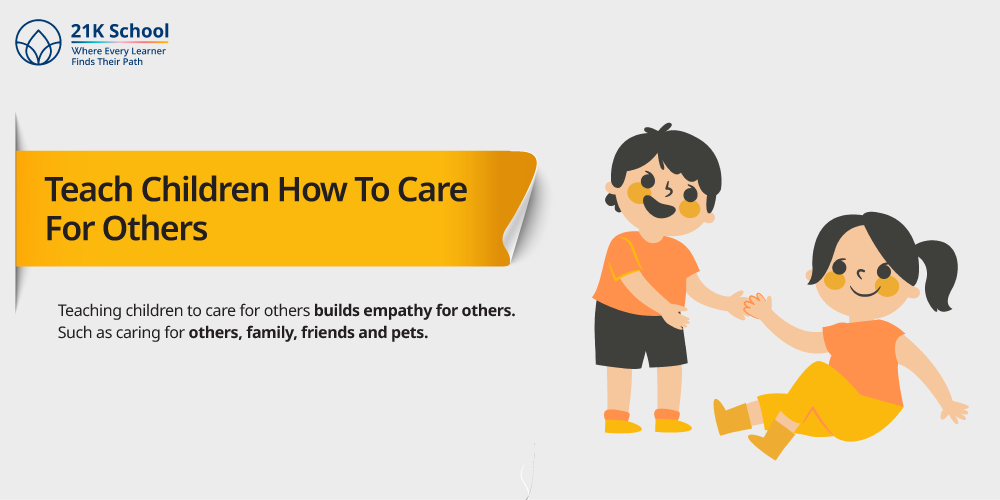
Teaching children to care for others builds empathy for others. Such as caring for others, family, friends and pets. Knowing the choices and needs of others makes them more responsible and social.
5. Let children do things for themselves
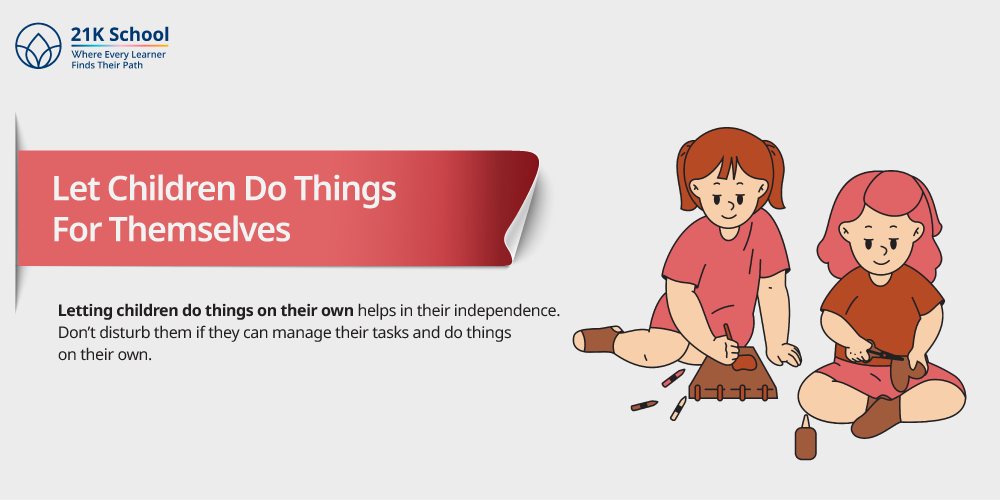
Letting children do things on their own helps in their independence. Don’t disturb them if they can manage their tasks and do things on their own.
Like, they can easily do small chores and do things in their households. Letting them dress on their own, arranging their school things, doing their activities.
6. Create an independent environment
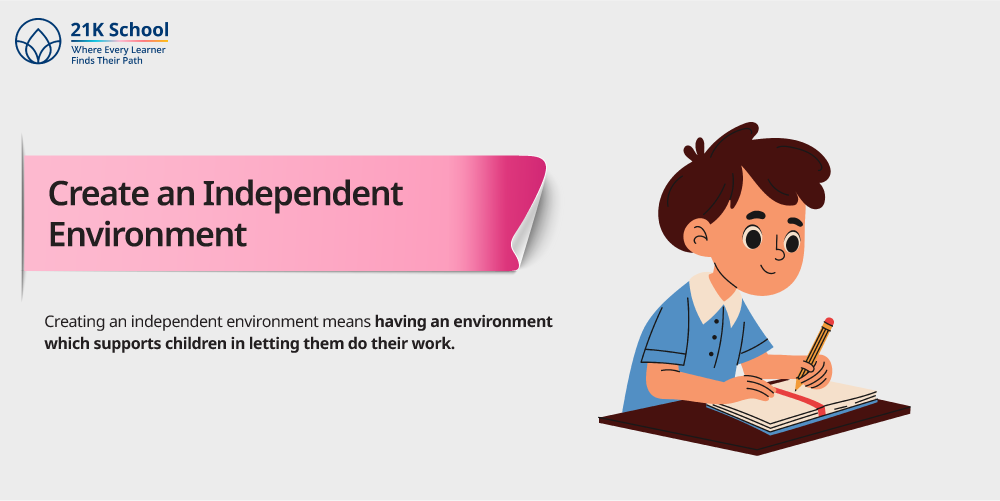
Creating an independent environment means having an environment which supports children in letting them do their work. It gives them ownership, autonomy and constant independence in doing their work. Know about how to deal with generation gap .
They can do things which are appropriate in their age, like having small tables, shelves and storage boxes.
7. Foster Life-skills
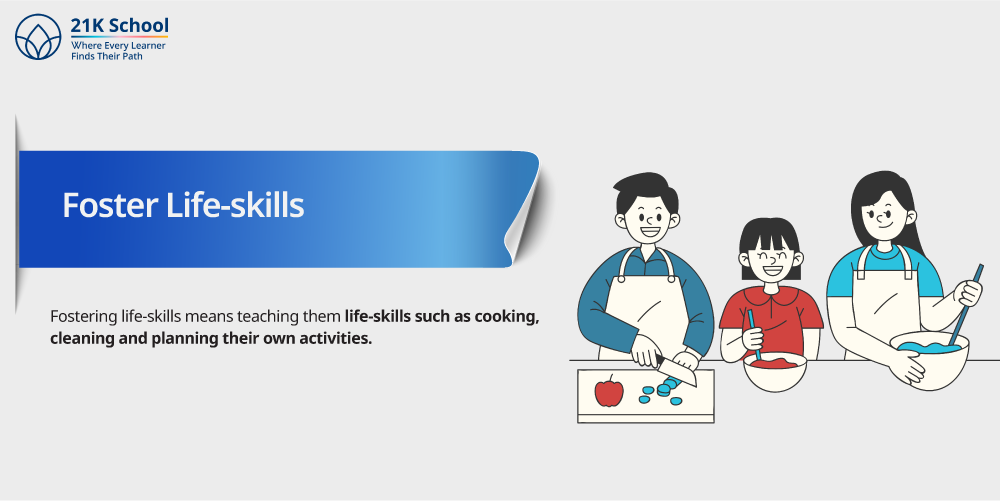
Fostering life-skills means teaching them life-skills such as cooking, cleaning and planning their own activities. It makes them prepared for real-life situations and different challenges.
They can fight their challenges on their own and come out. It also helps them tackle their sufferings and daily conflicts.
8. Build Confidence and Trust
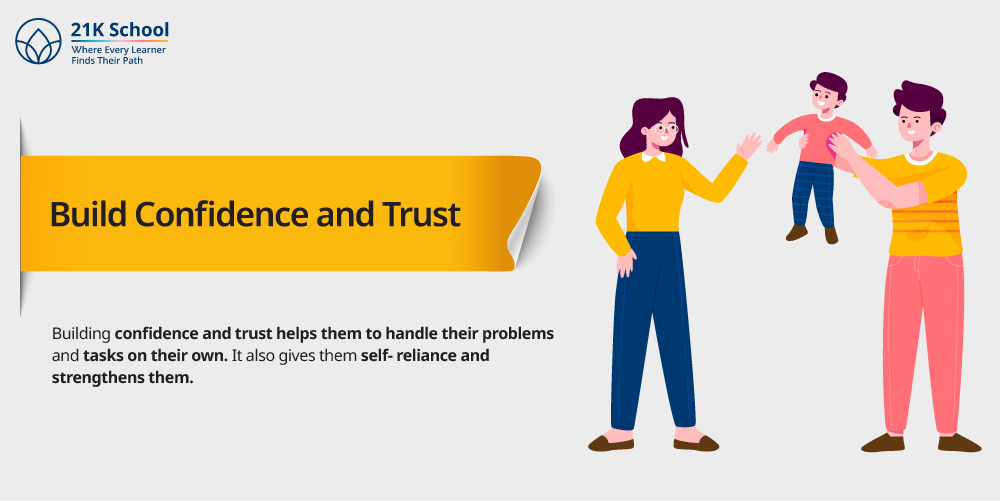
Building confidence and trust helps them to handle their problems and tasks on their own. It also gives them self- reliance and strengthens them.
Their belief system gets motivated and it lets them engage and interact better.
9. Encouraging conflict resolution skills

Encouraging conflict resolution skills makes them solve their problems and issues that they suffer. Rather than indulging in fights and conflicts, mentor them to express and communicate clearly.
Solving their conflicts and fights helps them with social emotional development. Know why social emotional learning is important .
10. Let them fail
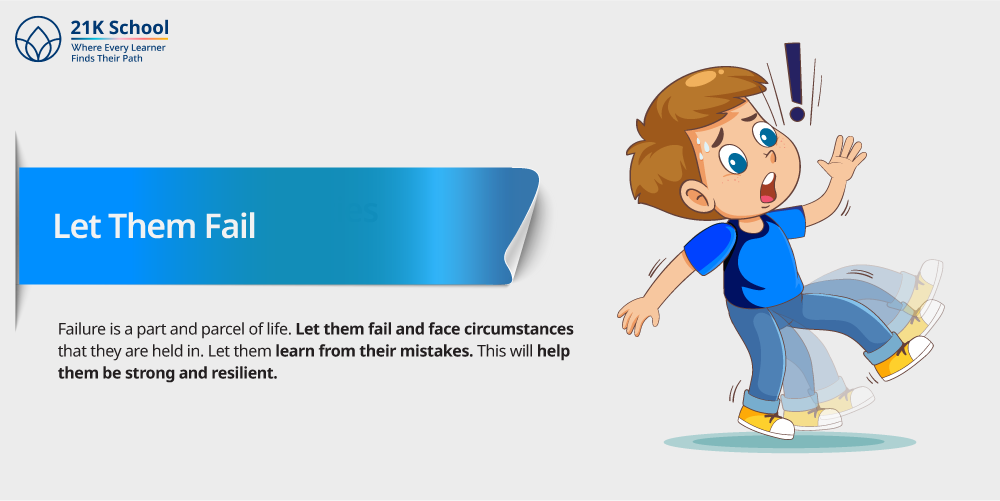
Failure is a part and parcel of life. Let them fail and face circumstances that they are held in. Let them learn from their mistakes. This will help them be strong and resilient.
Avoid saving them from every mistake that they have made and rescuing them from it.
Final Thoughts
Raising an independent child is a long process that requires time, support and trust in them. You have to prepare them, not only for schools but for their further life as well.
Letting them gain responsibility, problem- solving, critical thinker and accountability helps them in their independence. This makes them move towards success and explore the world on their own.
They learn from their mistakes and face different challenges in real- world situations. Children learn to tackle their problems and come out on their own.
